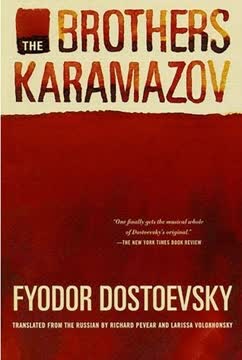つの重要なポイント
1. 第二次世界大戦を生き抜いたポーランドの少年
「私は11歳で、初めて人が撃たれるのを見た。」
中断された子供時代。 アンドリュー・ボロウィエックの回顧録は、彼のポーランドでの幼少期から始まる。戦争の突然の勃発により、彼の生活は一変する。若い少年として、彼はドイツの侵略と占領を目の当たりにし、戦争によって引き裂かれた世界で急速に成長を余儀なくされる。
分断された家族。 戦争はアンドリューを母親から引き離し、家族生活を混乱させる。彼は退役したポーランド軍の大佐である父親と、その後は父親の愛人であるマテチカと共に暮らすことになる。これらの関係は彼の世界観を形成し、混乱の中での安定感を提供する。
戦争の第一線での体験。 アンドリューの旅は故郷からリヴィウへと続き、そこでソビエトの占領を目撃し、その後再びドイツ占領下のポーランドに戻る。これらの経験は、空襲、街頭戦闘、そして絶え間ない暴力の脅威など、戦争の厳しい現実を彼に教える。
2. ワルシャワ蜂起:自由を求めた絶望的な戦い
「武器を取れ! – 蜂起の最も人気のあるポスター」
反乱する都市。 1944年のワルシャワ蜂起はアンドリューの物語の中心を成す。若いティーンエイジャーとして、彼はポーランドの抵抗運動に参加し、ナチス軍に対する63日間の戦いに加わる。この蜂起は、ソビエト軍の到着前に首都を解放しようとするポーランド人の絶望的な試みを象徴している。
英雄と犠牲。 アンドリューは、バリケードを築き、負傷者を手当てし、圧倒的な困難に立ち向かうワルシャワ市民の勇気と決意を描写する。この蜂起は、ポーランド人のレジリエンスと自由のためにすべてを犠牲にする意志を示している。
悲劇的な結果。 初期の成功にもかかわらず、蜂起は外部からの支援の欠如とナチスの残虐な対応により最終的に失敗する。アンドリューはワルシャワの破壊とその住民に対する恐ろしい犠牲、包括的な処刑や生存者の強制退去を目撃する。
3. ナチス占領下のポーランドでの生活:抵抗と生存
「私はどこにでも私たちのサインを描いた。見やすい空白の壁があればそれで十分だった。」
地下抵抗運動。 アンドリューは15歳でポーランドの抵抗運動に関わり、グレイランクス(Szare Szeregi)に参加する。彼は地下新聞の配布、抵抗のシンボルの描画、そして最終的にはワルシャワ蜂起での戦闘など、さまざまな活動に参加する。
日常の挑戦。 ナチス占領下の生活は危険と困難に満ちている。アンドリューは食糧不足、夜間外出禁止令、逮捕や強制送還の絶え間ない恐怖を描写する。彼と彼の仲間のポーランド人は、これらの挑戦を乗り越え、国家のアイデンティティを維持するための戦略を開発する。
抵抗の中での教育。 ナチスの禁止にもかかわらず、アンドリューは秘密の授業を通じて教育を続ける。この地下教育システムは、ポーランド人の文化を保存し、戦後の未来に備える決意を示している。
4. 戦争の恐怖:残虐行為と喪失の目撃
「初日の終わりまでに、ラインファルトは少なくとも1万人の男性、女性、子供の死を監督していた。」
大量虐殺。 アンドリューはナチス軍によるユダヤ人の組織的な殺害やワルシャワ蜂起の残虐な抑圧など、数々の残虐行為を目撃し、描写する。これらの経験は彼の心に消えない痕跡を残し、人間の残虐性に対する理解を形成する。
個人的な喪失。 戦争を通じて、アンドリューは友人、家族、仲間を失う。特に父親の死と母親からの別離は痛ましい経験であり、彼を急速に成長させ、自分自身のレジリエンスに頼ることを余儀なくさせる。
都市の破壊。 蜂起後のワルシャワの体系的な破壊は、アンドリューと彼の仲間のポーランド人にとって深い喪失を意味する。首都の物理的な破壊は、戦争がポーランド社会と文化に与えた広範な破壊を象徴している。
5. 少年から兵士へ:戦争の中での成長
「私は16歳と3日で、ただ静かに死にたいと思っていた。」
急速な成熟。 戦争はアンドリューを急速に成長させ、数年のうちに保護された子供から抵抗戦士へと変貌させる。彼は武器の扱い方、危険な状況の乗り越え方、戦闘の心理的負担に対処する方法を学ぶ。
道徳的なジレンマ。 若い兵士として、アンドリューは困難な倫理的選択に直面し、戦時中に他人が行う道徳的妥協を目撃する。これらの経験は彼の先入観に挑戦し、複雑な善悪の問題に取り組むことを余儀なくさせる。
無垢の喪失。 戦争中、特にワルシャワ蜂起の間に、アンドリューの若々しい無垢は剥ぎ取られる。彼は死、暴力、人間の苦しみを目の当たりにし、それが彼の世界観を深く変え、成人への移行を象徴する。
6. 戦争の複雑さ:残虐さと優しさの両方に直面して
「それでも、彼らの喪失は打撃だった。夕食に余分なジャガイモがあることは楽しみだった。」
グレーの陰影。 アンドリューの回顧録は、戦時中の人間の行動の複雑さを明らかにする。彼は友人や敵からの極端な残虐さと予期しない優しさの両方に直面し、単純な善悪の概念に挑戦する。
生存戦略。 アンドリューは生存を確保するために道徳のグレーゾーンをナビゲートする方法を学ぶ。これにはブラックマーケット活動への関与、予期しない同盟の形成、危機の瞬間における困難な選択が含まれる。
予期しない人間性。 戦争の全体的な残虐さにもかかわらず、アンドリューは一部のドイツ兵や看守からの思いやりと礼儀正しさの瞬間を回想する。これらの人間性の瞬間は、戦争の暗闇の中で希望の光を提供する。
7. 捕虜体験:ドイツの収容所での生活への適応
「覚えておけ、お前は元気ではない」と彼は言った。「お前はショックを受けた。今は憂鬱に苦しんでいる。」
収容所生活。 捕虜となった後、アンドリューはドイツの収容所での生活を経験する。彼は日常のルーティン、食糧や基本的な必需品の確保のための闘い、そして異なる国籍の囚人たちの間で育まれる友情を描写する。
生存技術。 アンドリューは収容所システムをナビゲートする方法を学び、言語スキルと機転を駆使してより良いポジションを確保し、最も過酷な作業を避ける。また、一部の看守や医療スタッフからの親切にも助けられる。
国際的なコミュニティ。 捕虜収容所はアンドリューにさまざまな国からの囚人たちとの交流の機会を提供する。この経験は彼の世界観を広げ、捕虜生活の中でも文化交流や言語学習の機会を提供する。
8. ナチスドイツの最終日:希望と不確実性
「ドイツは終わりだ」と看守は言った。これから数ヶ月間、私たちはこの言葉を何度も耳にすることになる。
変わりゆく潮流。 戦争が終わりに近づくにつれ、アンドリューはドイツ軍と市民の士気の低下を観察する。連合軍の爆撃の頻度が増し、ソビエト軍の接近がナチス政権の崩壊を予感させる。
不確実な未来。 ドイツの敗北が差し迫っているにもかかわらず、アンドリューと彼の仲間の捕虜は不確実な未来に直面する。彼らは報復の可能性、ソビエト軍の接近、戦後の生活再建の課題について心配する。
学んだ教訓。 アンドリューの戦時中の経験は、人間の本質、戦争の複雑さ、そして人間の精神のレジリエンスに対する微妙な理解を彼にもたらす。彼は不確実な未来を見据えながら、紛争と生存を通じて得た貴重な知恵を胸に抱く。
最終更新日:
FAQ
What's Warsaw Boy: A Memoir of a Wartime Childhood about?
- Personal Narrative: The memoir by Andrew Borowiec recounts his childhood experiences during World War II in Poland, focusing on the Warsaw Uprising and the impact of Nazi and Soviet occupations.
- Historical Context: It provides a vivid portrayal of the war's impact on Borowiec's family and community, capturing the complexities of identity and survival during wartime.
- Childhood Perspective: Told from a young boy's perspective, the narrative contrasts innocence with the brutal realities of war, making it both poignant and impactful.
Why should I read Warsaw Boy?
- Engaging Storytelling: Borowiec's writing is evocative, drawing readers into the emotional landscape of his wartime childhood.
- Historical Insight: The memoir offers a personal glimpse into significant historical events, such as the Warsaw Uprising and the Holocaust, providing context often missing in traditional histories.
- Universal Themes: Themes of loss, resilience, and identity resonate throughout the book, making it relatable to readers.
What are the key takeaways of Warsaw Boy?
- Resilience in Adversity: The memoir illustrates the strength of the human spirit in the face of overwhelming odds, highlighting how individuals and communities endure during crises.
- Complexity of War: It emphasizes that war is a deeply personal experience affecting families and relationships, showcasing moral ambiguities and difficult choices.
- Cultural Identity: Borowiec explores Polish identity and the impact of occupation on cultural heritage, providing a nuanced understanding of the era.
What are the best quotes from Warsaw Boy and what do they mean?
- “When I grow up, I will be an officer, n’est-ce pas, Mademoiselle?”: Reflects childhood innocence and aspirations shaped by societal expectations of honor and duty.
- “We will not give up a single button of our uniform.”: Captures the fierce pride and determination of the Polish people to resist occupation, symbolizing the struggle for national identity.
- “The day is coming.”: Serves as a rallying cry for hope and resistance, embodying the belief in eventual liberation and justice.
How does Warsaw Boy depict childhood during wartime?
- Loss of Innocence: Borowiec's childhood is marked by a transition from peace to the harsh realities of war, illustrating how innocence is shattered by violence and loss.
- Adaptation and Survival: The author describes how children adapt to new circumstances, often taking on adult responsibilities, highlighting their resilience.
- Friendship and Community: Despite chaos, the memoir emphasizes the importance of friendships and community bonds, providing moments of joy and normalcy.
What role does family play in Warsaw Boy?
- Support System: Family serves as a crucial support system, with relationships illustrating love, loyalty, and protection during wartime.
- Conflict and Tension: The memoir reveals family tensions, particularly between Borowiec's parents, reflecting broader societal struggles.
- Legacy and Memory: Borowiec's reflections highlight the importance of memory and legacy, shaping his understanding of identity and belonging.
How does Warsaw Boy address the theme of identity?
- Cultural Heritage: The memoir explores Borowiec's Polish identity and the complexities of living under Nazi and Soviet occupations.
- Personal Growth: As Borowiec navigates war challenges, he grapples with his sense of self and belonging, intertwined with historical events.
- Jewish Community: Observations of the Jewish community provide insight into broader issues of identity and persecution, underscoring shared humanity.
What significant historical events are covered in Warsaw Boy?
- Warsaw Uprising: Details the 1944 Uprising, a pivotal moment in Polish history, with Borowiec's firsthand account providing a unique perspective.
- Nazi and Soviet Occupation: Recounts experiences under both regimes, highlighting their differing impacts on Polish society.
- Holocaust and Jewish Persecution: Addresses the Holocaust and the extermination of Jews, serving as a poignant reminder of war's human cost.
How does Warsaw Boy illustrate the impact of war on community?
- Displacement and Loss: Depicts the displacement of families and loss of community ties, highlighting collective trauma in occupied Poland.
- Acts of Resistance: Illustrates community responses to occupation, including acts of resistance and solidarity.
- Cultural Resilience: Showcases the resilience of Polish culture and identity through shared traditions and acts of defiance.
What challenges did Andrew Borowiec face during the Uprising?
- Survival in a War Zone: Faced constant threats of violence and death amidst the chaos of the Uprising.
- Loss of Innocence: Confronted brutal war realities at a young age, leading to a profound loss of innocence.
- Family Separation: Experienced separation from family and uncertainty about their safety, adding to emotional turmoil.
How does Warsaw Boy depict the relationship between Poles and Soviets during the Uprising?
- Ambivalence and Distrust: Reveals a complex relationship marked by ambivalence and distrust, with hopes for Soviet support tempered by fear.
- Soviet Indifference: Highlights Soviet indifference during the Uprising, as they delayed their advance and failed to assist.
- Struggle for Independence: Emphasizes the Polish desire for independence from both Nazi and Soviet control.
How does Warsaw Boy contribute to our understanding of the Warsaw Uprising?
- Firsthand Account: Provides a unique perspective on the Uprising, enriching the historical narrative with personal stories and reflections.
- Historical Context: Situates the Uprising within the broader context of World War II and Polish history, highlighting its significance.
- Legacy of Memory: Contributes to preserving the memory of the Uprising, serving as a testament to the courage and sacrifices of those involved.
レビュー
『ワルシャワ・ボーイ』は、第二次世界大戦中、特にワルシャワ蜂起におけるポーランドの若者の体験を生き生きとした第一人称で描いている点で高く評価されている。読者は、ボロヴィエツの詳細な叙述、愛国心、そして戦争の見過ごされがちな側面に対する独自の視点を称賛している。この本は、その歴史的意義、魅力的なストーリーテリング、そして感情的な影響力で称賛されている。一部の読者は特定の部分が遅く感じたり、混乱したりすることがあったが、ほとんどのレビューアーはポーランドの歴史や第二次世界大戦に興味がある人にとって必読の書と考えている。著者の文体と戦争の人間的な経験を伝える能力は頻繁に強調されている。







